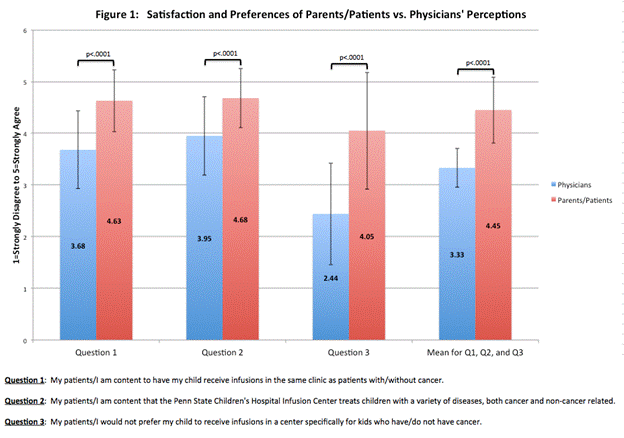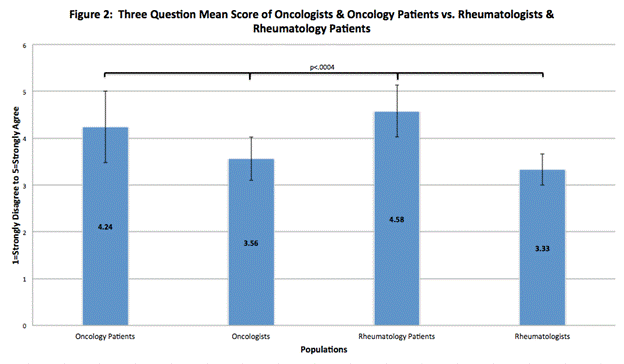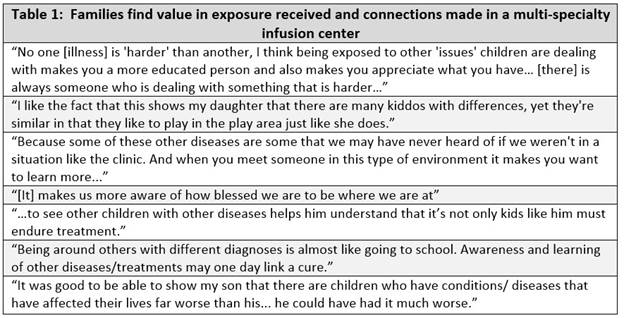Session Information
Session Type: ACR Poster Session A
Session Time: 9:00AM-11:00AM
Background/Purpose:
Many pediatric rheumatology patients receive infusions in multi-specialty infusion centers (MSICs). There is little data about pediatric patient satisfaction and preferences within MSICs and no data about their physicians’ perceptions of these preferences. In order to better understand and improve the patient experience, we studied these concepts.
Methods:
We created and administered a survey containing free response and 5-point Likert scale questions to parents of children receiving infusion therapy and their respective physicians at our center. We compared means and sums of the scores using t-tests and ANOVA analyses.
Results:
We surveyed 21 physicians (8 oncologists, 13 non-oncologists) and 174 parents of patients with oncologic (n=66) and non-oncologic (n=108) diagnoses who were receiving infusions in our MSIC. Our results showed significant differences between family satisfaction/preference and physician perception (Fig 1).
For all 3 questions, families responded positively towards the multi-specialty nature of the infusion center, though oncology families to a lesser degree than non-oncology families (respectively, mean=4.5 ±0.07 vs. 4.8 ±0.05; p<0.009).
Rheumatologists had a greater discrepancy than oncologists did in their perceptions of their patients’ preferences, predicting their patients would be less satisfied receiving care in an MSIC than patients reported (Fig 2). In addition, rheumatologists believed their patients would prefer to receive infusions in a center specific for children without cancer, despite families not having this preference (mean = 1.3 ± 0.58 vs. 2.7±0.90; p<0.027, respectively).
Lastly, the majority of families surveyed reported they had increased awareness and empathy from exposure to children with other diagnoses, reflected in their comments (Table 1).
Conclusion:
Pediatric rheumatology patients are satisfied with their experiences in an MSIC. Patients are significantly more satisfied than their physicians perceive. As infusion therapy for rheumatologic conditions increases, it is important to understand patient preferences as a crucial aspect of patient-centered care. Patients are content to receive infusions in an MSIC and find value in their experiences with families of children with other diagnoses.
To cite this abstract in AMA style:
McDermott & C, Sohl B, McGregor LM, Scalzi LV. Preferences and Satisfaction in a Pediatric Multidisciplinary Infusion Center [abstract]. Arthritis Rheumatol. 2017; 69 (suppl 10). https://acrabstracts.org/abstract/preferences-and-satisfaction-in-a-pediatric-multidisciplinary-infusion-center/. Accessed .« Back to 2017 ACR/ARHP Annual Meeting
ACR Meeting Abstracts - https://acrabstracts.org/abstract/preferences-and-satisfaction-in-a-pediatric-multidisciplinary-infusion-center/



